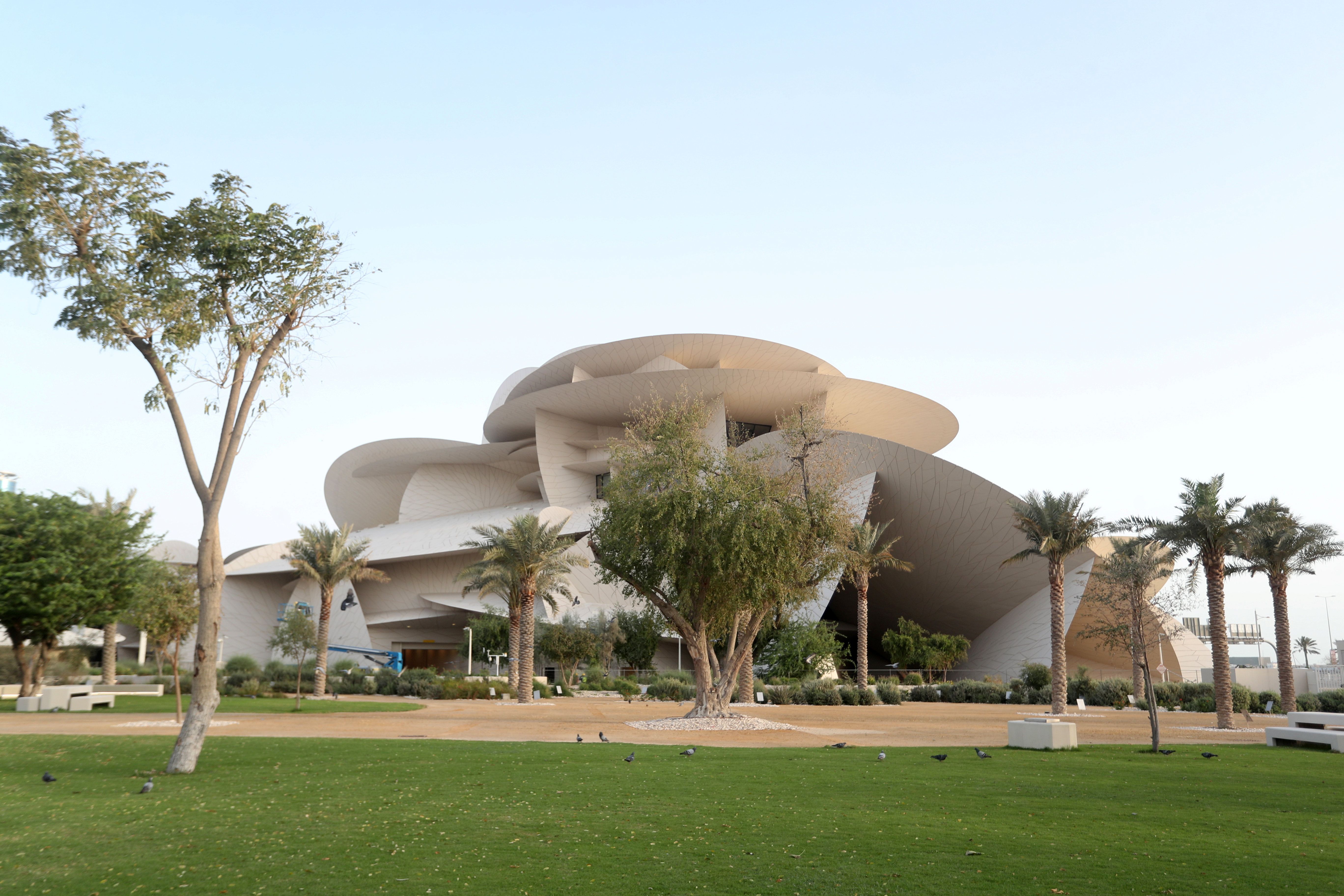April 03, 2019
Last week Qatar hosted a star-studden event to unveil a new National Museum, designed by star French architect Jean Nouvel.
Fashioned out of hundreds of randomly intersecting discs meant to look like a 52,000 square meter "desert rose," the museum tells the history of Qatar from prehistoric to modern times, devoting special attention to how the discovery of natural gas rapidly transformed a society of pearl-divers, falconers, fishermen, and nomads into the wealthiest country on earth.
But the museum is also, as Nouvel says, "a testimony of this time in Qatar, which is a very powerful period."
Powerful indeed.
For the last two years, Qatar has been the target of a severe sanctions campaign, led by Saudi Arabia, the United Arab Emirates, and Egypt. Those countries take issue with Qatar's support for Islamist political movements like the Muslim Brotherhood, as well as its warm ties with their regional rival, Iran. The Qatari government has responded with a public relations blitz meant to boost its image in Western capitals.
Closer to home, the museum's opening is meant to send two signals to Doha's regional rivals.
First, that despite an ongoing blockade against Qatar, the kingdom is doing fine. After all, splurging half a billion dollars on a museum isn't exactly what you do if you're living hand to mouth.
Second, while Saudi Arabia is struggling mightily with its image in the West (murdering a dissident journalist hasn't helped), Qatar – for all its well-documented human rights abuses – is successfully casting itself as an arty and cosmopolitan place to do business.
It remains to be seen how much buzz the museum will generate outside of Doha once the initial fanfare is over. And whether ordinary Qataris will be drawn to its exhibits is an open question.
But at the very least we are happy to see Middle East rivalries play out in galleries rather than in trenches.
From Your Site Articles
Related Articles Around the Web
More For You
Ian Bremmer sits down with former US Ambassador to NATO Ivo Daalder to unpack a historic shift in the transatlantic alliance: Europe is preparing to defend itself without its American safety net.
Most Popular
Think you know what's going on around the world? Here's your chance to prove it.
U.S President Donald Trump, U.S. Vice President JD Vance, and U.S. Secretary of State Marco Rubio pose for a family photo with other representatives participating in the inaugural Board of Peace meeting, at the U.S. Institute of Peace in Washington, D.C., U.S., February 19, 2026.
REUTERS/Kevin Lamarque
Argentina, Armenia, Belarus, Egypt, Indonesia, Jordan, Pakistan, Paraguay, Vietnam – to name only a few.
A poster featuring Andrew Mountbatten-Windsor, formerly known as Prince Andrew, is installed on a sign leading to the parking area of the Sandringham Estate in Wolferton, as pressure builds on him to give evidence after the U.S. Justice Department released more records tied to the late financier and convicted sex offender Jeffrey Epstein, in Norfolk, Britain, February 5, 2026.
REUTERS/Isabel Infantes
British police arrested former Prince Andrew Mountbatten-Windsor today over allegations that in 2010, when he was a UK trade envoy, he shared confidential government documents with convicted sex offender Jeffrey Epstein.
© 2025 GZERO Media. All Rights Reserved | A Eurasia Group media company.
